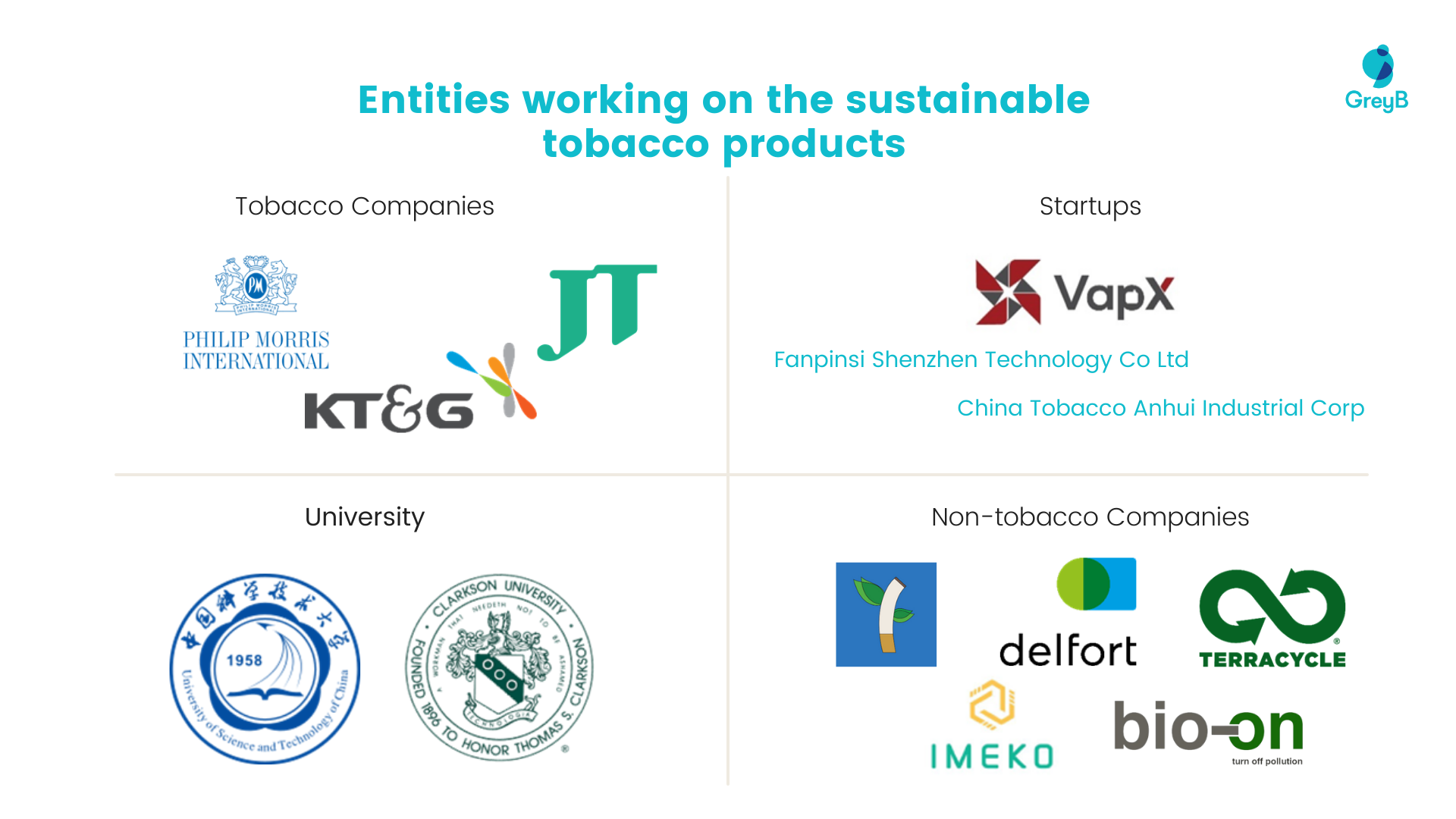Every year the tobacco industry costs the world more than 600 million trees, 200 000 hectares of land, 22 billion tonnes of water and 84 million tonnes of CO2
WHO
Sustainability has become a pressing concern for the tobacco industry. Tobacco giants like JT are researching biodegradable cartridges for vapor-based systems. Their technology discusses waste generated through disposable and single-use components such as capsules and containers.
The company believes that biodegradable materials like paper, cotton, natural fibers, and recycled biomaterials can be used in the production of cigarette filters.
For this, many tobacco companies are exploring innovative solutions.
But can the tobacco industry clean the air?
Who is working on the sustainability of tobacco products?

Where is the industry headed?
Research by Philip Morris on the sustainability of their tobacco products

The company is actively working on post-consumption waste and implementing eco-friendly design and circularity in its products.
For this, the firm has partnered with Ecofilter, a local startup that aims to reduce cigarette butt litter through a biotechnological treatment that regenerates cellulose acetate into cellulose pulp.
This partnership has led to the establishment of Ecofilter’s factory in Mexico that can process 300 tons of cellulose annually.
Another research by Phillip Morris also indicates their interest in developing biodegradable filters.
Research by BAT on the sustainability of their tobacco products

Following the footsteps of Philip Morris, BAT has partnered with a Chile-based startup, IMEKO, to realize the waste valorization of cellulose acetate present in cigarette butts.
Research by KT&G on the sustainability of their tobacco products

They aim to develop biodegradable filters with smoking characteristics similar to traditional cigarettes.
Their patent KR102450720B1 suggests that these filters contain seeds like vegetable seeds belonging to the Brassicaceae family. When disposed into the soil as a butt, the seeds will germinate, thereby disrupting the structure of the cellulose acetate, and is also easily hydrolyzed.
Further, the company’s patent KR102386075B1 refers to research on alternate approaches to enhance the biodegradability of the filter.
As part of their patent EP3939442A1, the giant took it a step further by researching to enhance the biodegradability of cigarette/ tipping paper.
Research by JT on the sustainability of their tobacco products

JT, another tobacco company, is also working on tackling the waste problem. The research performed by the company indicates their interest in the development of filters with high degradability.
For this, one of their approaches suggests using natural fibers like cotton, hemp, pulp, etc., in their filters.
Aside from researching the biodegradability of cigarette butts, tobacco companies are also studying the sustainability of electronic devices.
Sustainability in electronic cigarettes
Tobacco giants like JT have conducted research on biodegradable cartridges for vapor-based systems. Their patent EP4064905A1 discusses waste generated through disposable and single-use components such as capsules and containers.
The company believes that biodegradable materials could be paper, cotton, natural fibers, and recycled biomaterials.

Meanwhile, research by VapX, a China-based tobacco company, focuses on minimizing the problem of waste by circumventing the concern of discarding the atomizer by providing a modular/detachable configuration, making it recyclable.
Conclusion
The global concern for sustainability has forced industries to shift their focus toward adopting sustainable practices.
We believe that sustainability is not just a passing trend but a fundamental shift in how we think about business and our impact on the world.
Looking for deeper insights into this trend?
Find it all in our Tobacco Industry Trend Report! Just fill out the form below, and we’ll inbox you the report.
Authored By: Prateek and Sushant, Patent Intelligence
Edited By: Ridhima Mahajan, Marketing
Also read: The State of Tobacco Industry 2023: Navigating through the FDA Regulations










